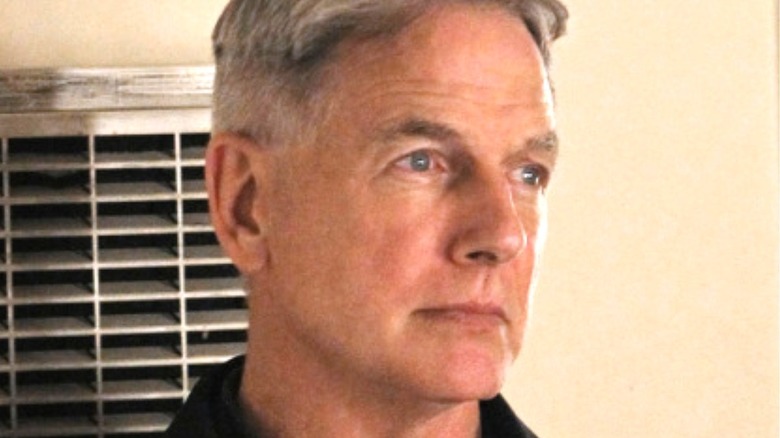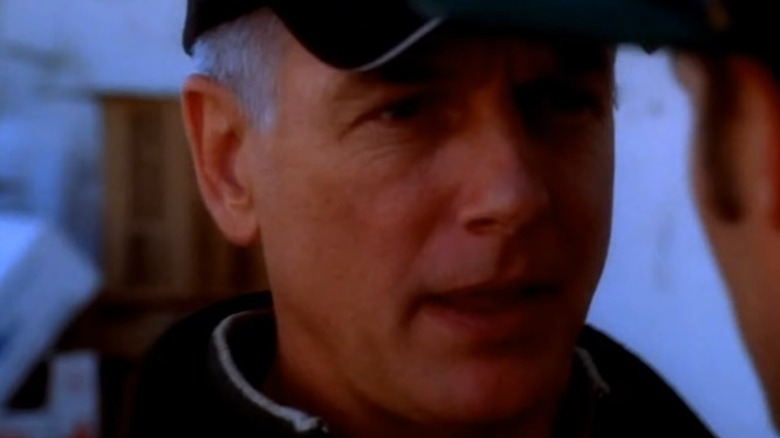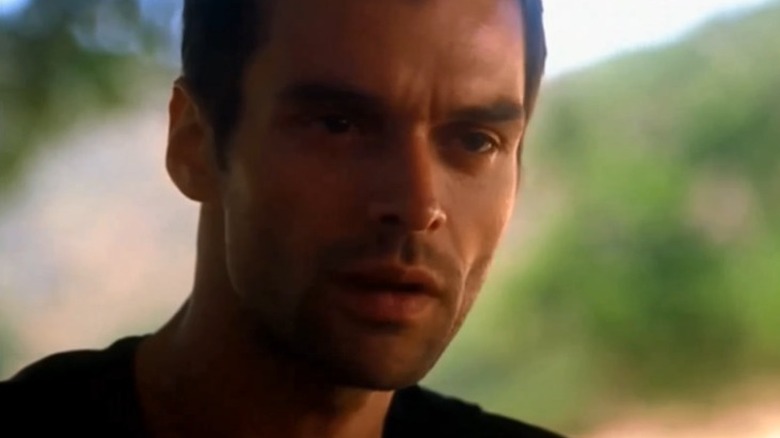The Ending Of NCIS Season 1 Explained
Following its two-part backdoor pilot on "JAG," "NCIS" premiered its 1st season in 2003 and quickly established itself as a big hit for CBS. Season 1, which introduced us to Leroy Jethro Gibbs (Mark Harmon) and his NCIS unit, consistently had viewership figures in the tens of millions. The episode "Left For Dead" is the season's highest viewed one, with 14.5 million viewers (via CBS Express). Keep in mind that this was only the 10th episode of the entire season. The first outing for "NCIS" was largely about establishing particular beats that would later become more familiar series mainstays. For instance, while the 1st season largely leaned on its naval setting more so than later in the series, it would never abandon its procedural drama formula shown since its premiere.
There's always a case for the NCIS team to crack, even when everything gets more personal. And, oh boy, everything definitely gets personal for Gibbs during the Season 1 finale. During the end of Season 1, Gibbs takes his vengeful obsession to track down a terrorist to worrying levels. But even after a member of his team is kidnapped, does Gibbs get his coveted payback? Or does he get the beginning of something much more dangerous? Let's delve into the ending of "NCIS" Season 1 to find out.
Revenge is on the mind of Gibbs in Reveille
On the surface, "Reveille" comes off as the series' attempt at wrapping up some loose ends for the season through some hefty payback. Ever since a terrorist snuck in and wreaked havoc within NCIS headquarters in the episode "Bête Noire," Gibbs has been working painstakingly at finding out anything about the culprit, or at the very least a name. In "Reveille," he finally gets an identity. Some tech wizardry from Timothy McGee (Sean Murray) reveals that the mysterious infiltrator is a man named Ari Haswari (Rudolf Martin). Finding the identity of Ari comes at an opportune time as he's already kidnapped Caitlin Todd (Sasha Alexander) with the assistance of some other terrorists.
By the end of "Reveille," Gibbs does manage to get his showdown with Ari, and Caitlin is rescued. However, it all comes with a massive caveat, because of involvement from the FBI and CIA. Gibbs isn't allowed total vengeance against Ari. It turns out Ari is really a Mossad agent, and his hostage situation stunt in "Bete Noire" was part of his undercover mission to infiltrate a terrorist cell. Gibbs still gets his chance to meet with Ari in the NCIS autopsy room, ending with him shooting Ari in the shoulder. He remarks that the wound is a way for Ari to maintain his cover. But really, it's revenge for the gunshot wound Ari gave to Ducky's assistant Gerald Jackson (Pancho Demmings) earlier in the season. The episode's final scene shows a wounded Ari giving his best villain laugh, indicating that despite Gibbs' efforts, nothing has ended between the two. Instead, it's all just begun.
Reveille sets up the series' first arch-nemesis
The ending of Season 1 presented "NCIS" with many notable firsts. The finale introduces Gibbs at his most vengeful and obsessed. And we also get a good look at what would primarily become the team core. But generally, the main purpose of "Reveille" is for "NCIS" to get its first and arguably worst villain in Ari and tease him as a future threat. In one scene when he coldly shoots his Swedish terrorist associate in front of Caitlin, Ari displays a level of cruelty that no other bad guy in the season has shown. Ari is also a master schemer. Despite any havoc he's caused to Gibbs and NCIS, he gets away with it essentially because of his Mossad status and calculated scheming.
It's no wonder why Ari simply laughs after Gibbs shoots him — he knows it's only a hollow victory for Gibbs. And if he wants to, the villain can easily get revenge back as he can seemingly manipulate the U.S. government to get what he wants, even at the cost of the NCIS team. If there are any questions about Ari living up to that master villain status later in the series, let's just say that the events of the Season 1 finale are a proper foreshadowing of what occurs at the end of Season 2. Once again, in the 2nd season finale, Ari uses his Machiavellian ways to endanger Gibbs and his team. Ari also ends that season by nearly getting away with the shocking murder of one member of the NCIS team.


